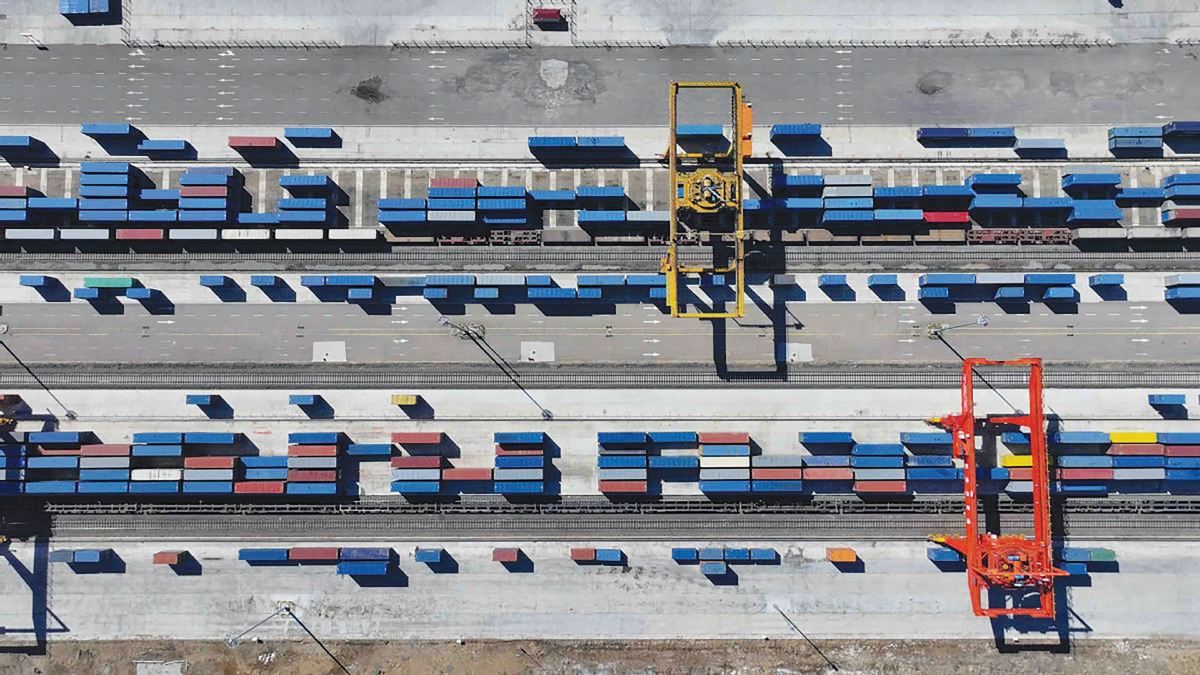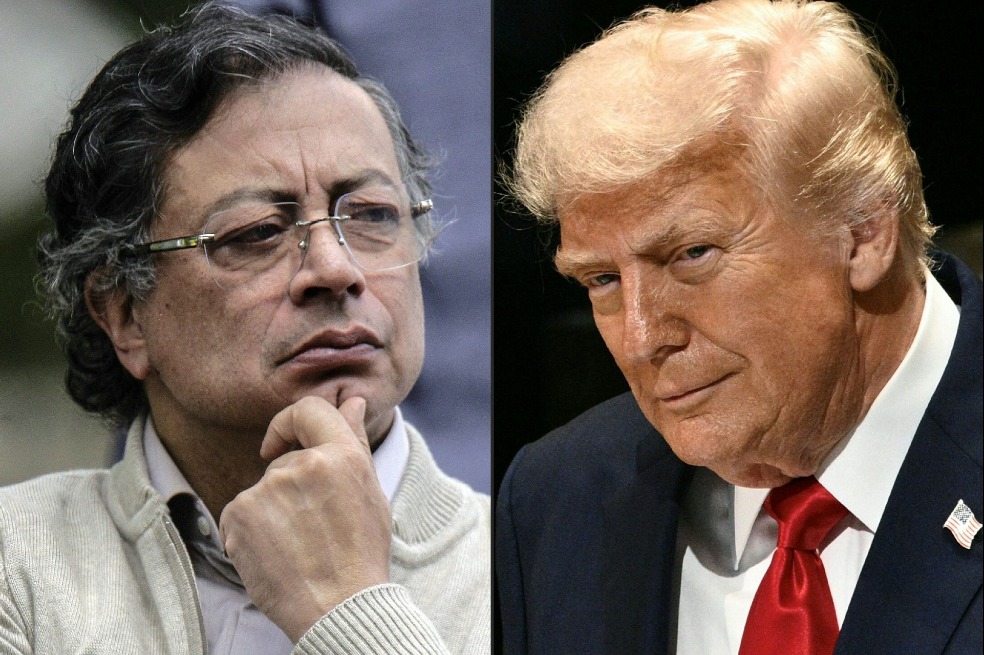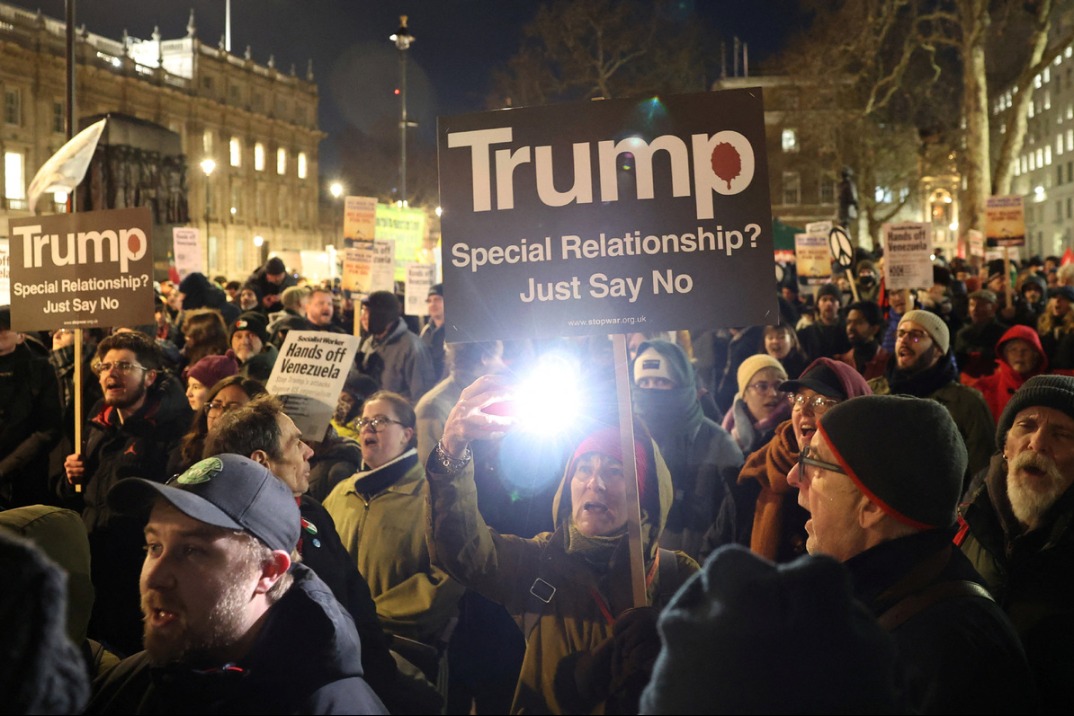Tariffs not a cure-all
Europe has not aligned with the US in its trade war against China but wants strategic autonomy, sustained prosperity through prudence, dialogue, Xing Yi reports in London.


United States President Donald Trump reignited his tariff rhetoric on social media on Oct 10, announcing his nation would impose a 100-percent tariff on all Chinese imports starting Nov 1 — or even earlier, depending on "any further actions or changes taken by China".
The sudden escalation caught financial markets off guard, sending shock waves through Wall Street and across the Atlantic, and caused anxiety among investors concerned about the potential for the world's two largest economies to be involved in a trade dispute.
It took only 48 hours for Trump to appear to hint he may not follow through with his tariff threat, posting on his Truth Social account on Sunday: "Don't worry about China, it will all be fine! … The USA wants to help China, not hurt it!!!"
The abrupt reversal was the latest example of Washington's unpredictable and blunt policies, which tend to use tariffs as a one-size-fits-all tool in dealing with international relations, said experts.
Last month, Trump called on members of the NATO military alliance and the European Union to hit China and India with tariffs of up to 100 percent. But in Brussels, policymakers refrained and showed Europe has no intention of mirroring America's tariff escalation against China.
Analysts note that Washington's tariff threats and political volatility are prompting Europe to rethink its reliance on the US, because aligning too closely with US protectionism could harm Europe's own economic interests and limit its strategic autonomy.
"Europe's cautious response reflects a growing sense of economic realism. Many European industries, particularly Germany's, are deeply integrated into global value chains where China is a crucial partner," said Michael Schumann, chairman of the board of directors of the German Federal Association for Economic Development and Foreign Trade. "German businesses have long been clear: they oppose protectionism, whether foreign or domestic. For Europe, automatically aligning with Washington's tariff demands would undermine its own interests. Prudence and dialogue, not escalation, sustain prosperity.
"Strategic autonomy is no longer an abstract concept; it is becoming a practical policy. This does not mean outright distancing from the US, but rather acting in accordance with Europe's own interests. Europe's refusal to simply follow US trade directives carries short-term risks but also yields dividends, such as credibility, balance, and policy independence."
He added that Europe's restraint shows it is increasingly seeking to define its policies based on its own industrial and trade logic, rather than political alignment.
In addition, unlike the US administration, the EU separates tariffs and sanctions, and it needs coordination within its 27 member states before introducing tariffs to address specific cases of market disturbances, most notably what it deems to be "unfair".
The latest example is the plan to protect the EU's steel industry from the impacts of global overcapacity by reducing the quota for tariff-free imports of steel, and doubling the level of out-of-quota duty to 50 percent.
Maros Sefcovic, European commissioner for trade, justified the measures proposed last week, saying: "EU trade is about fair, rules-based competition,
and this measure will help our steel industry compete fairly amid increasing global overcapacity.
"I look forward to opening consultations and negotiations with the EU's key trading partners in this sector through the WTO rules-based process."
Moreover, the measures were still subject to discussion within EU countries and the European Parliament, and the tariffs would take effect no sooner than next June, when the existing safeguards are due to expire.
































